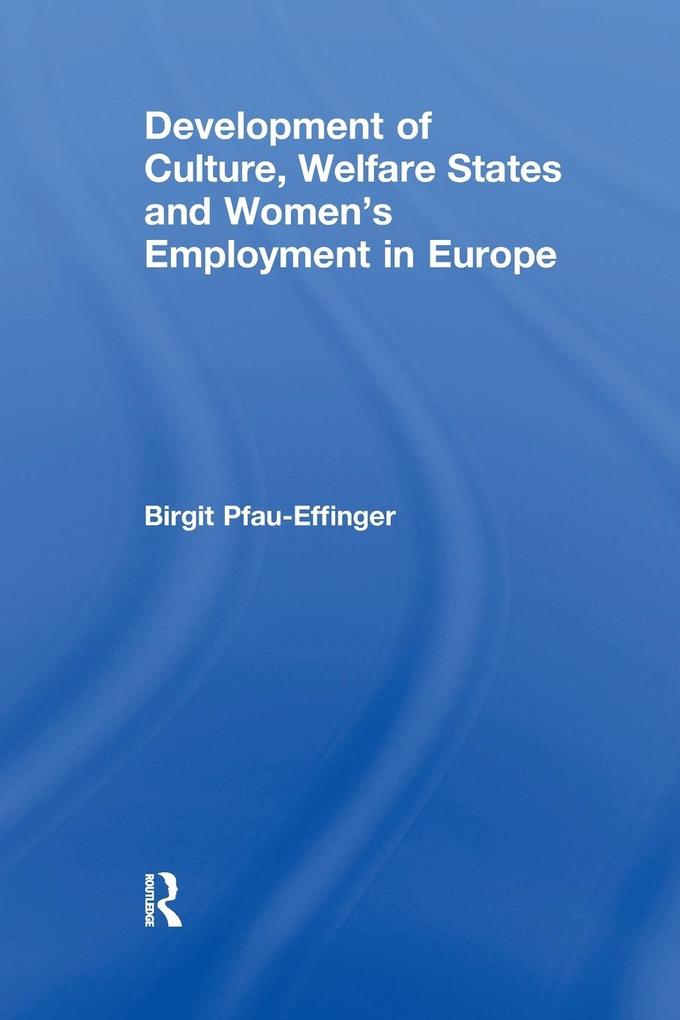
Zustellung: Di, 24.06. - Fr, 27.06.
Versand in 6 Tagen
VersandkostenfreiBestellen & in Filiale abholen:
This refreshing volume provides a theoretical framework for a comprehensive cross-national analysis of the degree and forms of labour market integration of women in three European countries - Finland, West Germany and the Netherlands - from the 1950s until 2000.
Inhaltsverzeichnis
Contents: Introduction; International differences in women's labour force participation: theoretical approaches; Constructing a theoretical framework for the cross - national comparison: the gender arrangement approach; Designing the empirical analysis; Germany: contradictory modernization- from the housewife to the part-time carer model of the family; The Netherlands: dramatic modernization of the gender arrangement - towards an egalitarian, family - oriented arrangement; Finland: from the family economic model to the dual breadwinner model; Development paths of gender arrangement and labour market integration; Exploring the differences in the development of gender arrangements; Conclusion; Bibliography; Index.
Produktdetails
Erscheinungsdatum
06. März 2017
Sprache
englisch
Seitenanzahl
228
Autor/Autorin
Birgit Pfau-Effinger
Verlag/Hersteller
Produktart
kartoniert
Gewicht
354 g
Größe (L/B/H)
234/156/12 mm
ISBN
9781138258174
Entdecken Sie mehr
Bewertungen
0 Bewertungen
Es wurden noch keine Bewertungen abgegeben. Schreiben Sie die erste Bewertung zu "Development of Culture, Welfare States and Women's Employment in Europe" und helfen Sie damit anderen bei der Kaufentscheidung.










